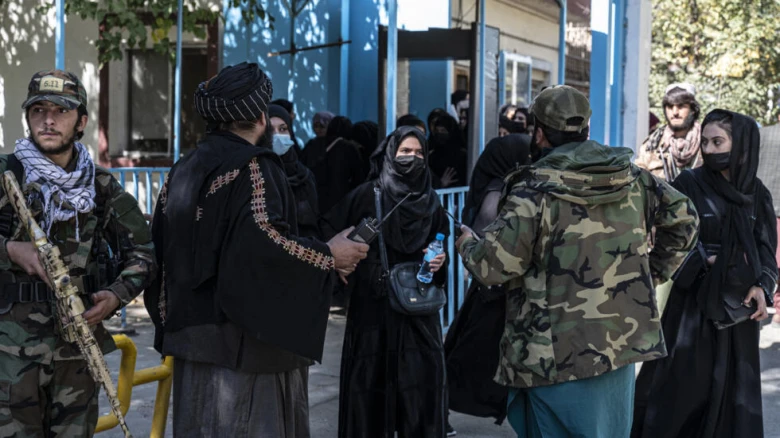Regional

The Taliban's recent decision to restrict women from visiting Band-e-Amir, one of Afghanistan's most prominent national parks, has...
Digital Desk: The Taliban's recent decision to restrict women from visiting Band-e-Amir, one of Afghanistan's most prominent national parks, has triggered widespread concerns about gender inequality and human rights. The announcement, made by a spokesperson for the Vice and Virtue Ministry, disclosed that security forces would be deployed to prevent women from entering the park. This move follows allegations by the ministry that women have been failing to adhere to prescribed hijab (Islamic headscarf) guidelines during their visits.
This development unfolded following a visit by Minister Mohammad Khalid Hanafi to the Bamiyan province, where he expressed dissatisfaction with women's dress code compliance while visiting the park. Hanafi called upon security personnel, religious clerics, and elders to enforce the ban, asserting that sightseeing is not essential for women.
Human rights advocates and organizations have swiftly criticized the Taliban's decision. Heather Barr, Associate Women's Rights Director at Human Rights Watch, lambasted the move, highlighting how this ban further exacerbates the long list of restrictions already imposed on Afghan women. These constraints include limited access to education, employment, and public spaces.
The latest move is emblematic of a broader pattern of regressive policies enacted by the Taliban since they assumed control of Afghanistan in August 2021. In the aftermath of their takeover, the Taliban introduced a series of measures specifically targeting women and girls. These measures encompassed the banning of girls from secondary schools, restricting women's freedom of movement, prohibiting female sports participation, and enforcing strict dress codes.
The gradual erosion of women's rights in Afghanistan has elicited international condemnation, even from Muslim-majority countries. The recent ban on women visiting Band-e-Amir National Park serves as an alarming indicator of the shrinking space for Afghan women in public life, depicting a systemic effort to marginalize and confine them within the confines of their homes.
In this context, the closure of beauty salons in July 2023 dealt another severe blow to women's liberties and the Afghan economy. With approximately 60,000 women employed in the beauty industry, this decision not only curtailed opportunities but also underscored the extent to which the Taliban's policies have curbed women's independence and participation in society.
The series of bans, which now encompass education, work, and park visits, paint a bleak picture of Afghan women's rights and freedoms under the current Taliban regime. As the international community watches these developments with growing concern, the push for the restoration of women's rights and gender equality in Afghanistan remains a paramount global issue that requires continued attention and action.
Leave A Comment